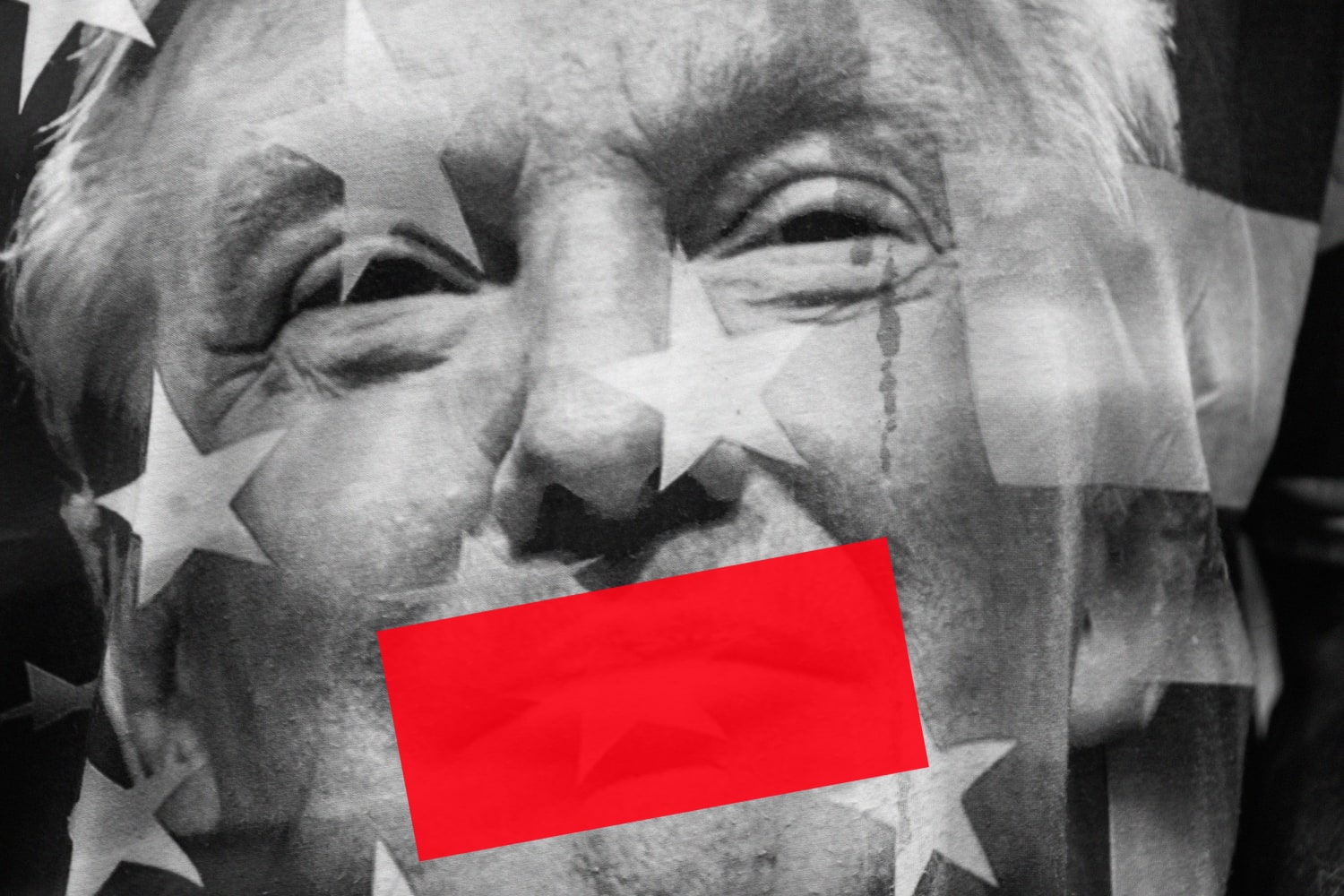Near the conclusion of Thursday’s U.S. House hearing into the events of Jan. 6, 2021, the committee voted unanimously to subpoena former President Donald Trump. This might seem like a major turning point in the investigation, and it’s not without significance. Nevertheless, the vote doesn’t mean the former president will be testifying before the committee. In fact, that possibility is remote.
When Trump or those in his inner circle have received subpoenas, they have mounted lengthy legal challenges to the subpoenas in court. In a letter Friday morning to the committee, Trump didn’t say whether he planned to comply in this case. While these previous challenges have failed, they have achieved the objective of delaying the various proceedings for many months.
When it comes to the possibility of pressing charges should Trump continue not to comply, the Justice Department might very well decline to do so.
And the clock for the committee is ticking. If the Republicans gain control of the House of Representatives in the midterm elections, as seems probable, the committee is unlikely to remain in existence after the first of the year. The Jan. 6 committee is a select committee, not a standing committee or subcommittee of the House. It would have to be renewed by the new Congress, an unexpected possibility if Republicans gain control the chamber. And even if Democrats retain control of the House, further obstacles remain.
In his private life before and after the presidency, Trump has made clear that a common modus operandi is to fight the legal process when it’s directed at him. That has been evident most recently in his response to the federal government’s effort to secure classified documents allegedly in his possession.
On May 11, agents working with the Justice Department served a subpoena on the custodian of records at Mar-a-Lago, seeking the return of classified documents. The serving of the subpoena led to a three- month interval, which included discussion between the Justice Department and Trump’s representatives; but it did not result in the production of the subpoenaed documents. After three months, the FBI executed a search warrant on Aug. 8.
The Mar-a-Lago subpoena was one example of a Trump defense strategy that amounts to a defensive war of attrition against investigators, civil plaintiffs and congressional investigators. In the New York attorney general’s investigation into the business and tax practices of Trump’s New York companies, which led to a civil suit against Trump, the former president stonewalled the AG’s attempts to get documents for years until a trial court judge issued a contempt citation. The judge eventually lifted the contempt order following Trump’s compliance.
Trump’s advisers give further evidence of how drawn out the process of cooperating with authorities can be. In April 2019, congressional investigators working on the first impeachment of the former president issued a subpoena for the testimony of Trump presidential adviser Don McGahn. Following a legal battle, McGahn finally testified more than two years after congressional investigators first sought his appearance.
When it comes to the Jan. 6 committee specifically, Trump has pushed former aides from his inner circle to take his approach. He ordered chief of staff Mark Meadows, deputy chief of staff Dan Scav, Jr. and Kashyap Patel, a Pentagon official, not to cooperate with the Jan. 6 committee.
After initially cooperating, Meadows refused to further assist the committee. It was not until September of this year that Meadows resumed his cooperation.Scavino, meanwhile, received a subpoena in October 2021 and haggled with the committee about producing documents before refusing to cooperate. Patel met with the committee more quickly than others. He appeared in December 2021, a few months after Trump had instructed him not to cooperate.
There are some counterpressures investigators can exercise. The Justice Department can pursue criminal contempt cases when those subpoenaed don’t testify, as it did with former Trump adviser Stephen Bannon and former trade adviser Peter Navarro after they stonewalled requests and subpoenas from the Jan. 6 committee. But the Justice Department doesn’t always take this step. In the case of Scavino, for instance, despite a referral from Congress, the Justice Department refused to charge him with contempt of Congress.
Even when the Justice Department does act, that doesn’t always guarantee the result. The department obtained a grand jury indictment for contempt of Congress and a jury convicted Bannon on both counts of the indictment in July 2022.Bannon is awaiting sentencing, and has yet to testify. Navarro was subpoenaed in February 2022. His trial date is Nov. 17.
This timeline is likely to be similar, if not longer, for Trump. After the subpoena is served, Trump and his legal team can comply with it. More likely, he will challenge the subpoena, negotiate with the committee or ignore it. Any of those alternatives will begin a protracted process that could last months or years.
The current Congress will be in place for about two and a half more months. If Republicans comprise a majority of the House of Representatives in the next session, there is almost zero chance that Republican leadership will reauthorize the select committee. Thus, it will cease to exist. The House will not seek to enforce the subpoena served on Trump, and it will not make a criminal referral to the Justice Department or press for that department to act on a referral.
Democrats retaining control of the House allows for the continuation of the proceedings against Trump, but it presents its own set of problems in enforcing the subpoena. A decision to continue the hearings solely to put the former president in the position of potentially invoking the Fifth Amendment is more a political maneuver than a fact-finding mission.
When it comes to the possibility of pressing charges should Trump continue not to comply, the Justice Department might very well decline to do so. It has already shown it does not automatically bring charges against those who defy congressional subpoenas. And there is likely to be little appetite in charging Trump specifically with contempt of Congress, as that would set a precedent for charging former presidents for low-level misconduct.
The Jan. 6 committee was certainly aware of the difficulties and the slim probability that it would succeed in acquiring documents or testimony from the former president. Nevertheless, the subpoena creates a strong inference that Trump was central to the Jan. 6 insurrection. The subpoena was at least as much a statement to future historians and the public about the committee’s unanimous belief in his culpability, as it was an attempt to obtain further evidence.
Source: | This article originally belongs to Nbcnews.com











